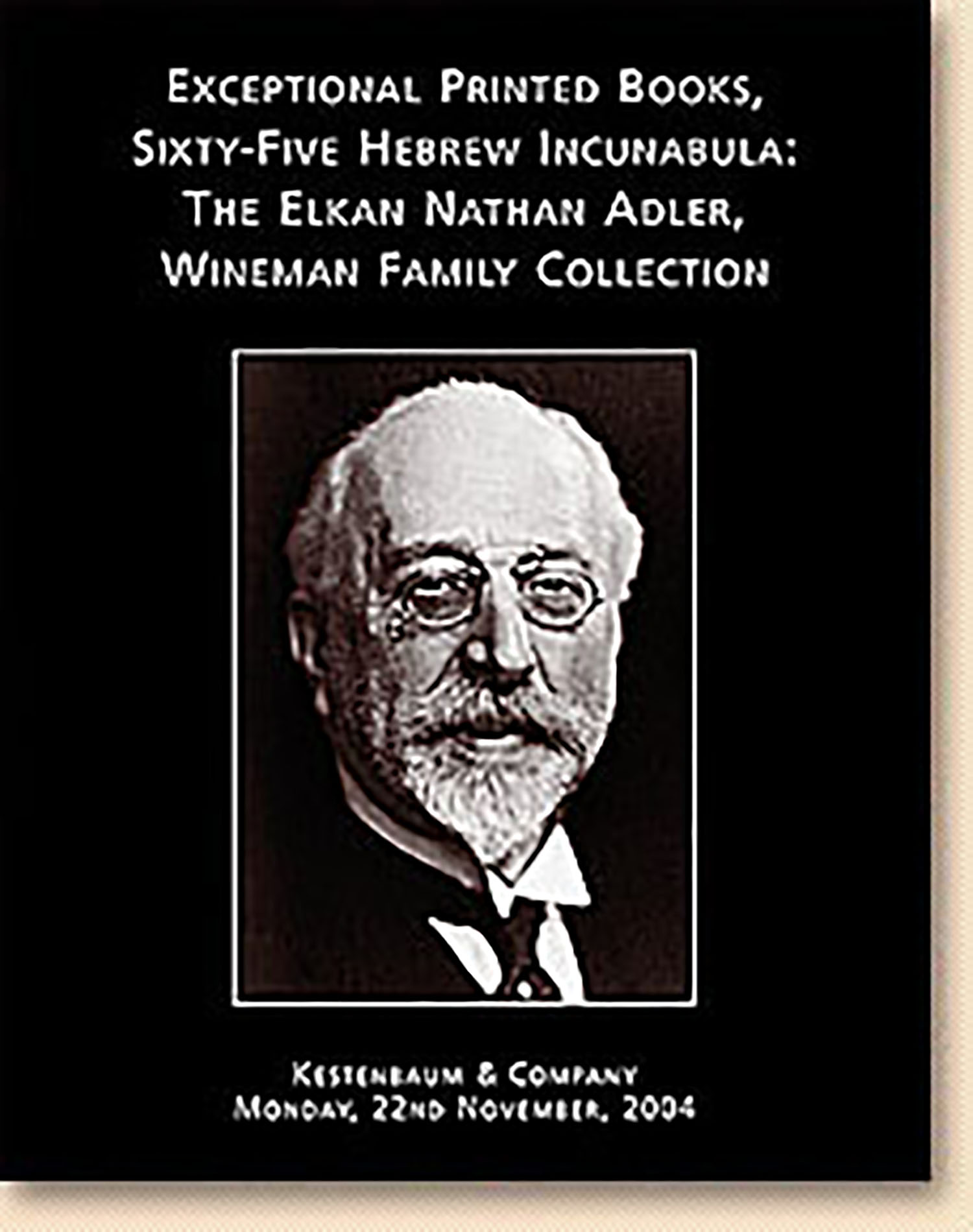(RaLBa”G). Commentary to the Pentateuch

AUCTION 26 |
Monday, November 22nd,
2004 at 1:00
Exceptional Printed Books, Sixty-Five Hebrew Incunabula: The Elkan Nathan Adler-Wineman Family Collection
Lot 11
LEVI BEN GERSHOM (GERSONIDES)
(RaLBa”G). Commentary to the Pentateuch
(Mantua or Ferrara?): Abraham ben Solomon Conat with Yedidyah Ha’ezrachi of Cologne (1474-6)
Est: $70,000 - $80,000
PRICE REALIZED $90,000
EXCEPTIONALLY FINE COPY OF GERSONIDES’ COMMENTARY TO PENTATEUCH.
The Provencal Rabbi Levi ben Gershom (Ralba”g or Gersonides) (1288-1344) wrote this most funadamental philosophical commentaries to the Pentateuch. After breaking the language barrier with a matter-of-fact Biur HaMiloth (Explanation of Words), the exegete launches into philosophical essays. A specialty of the commentary are the “To'eleth” or moral lessons to be derived from the particular passage in the Torah.
However, Gersonides’ Commentary was condemned by Judah Messer Leon, the greatest of the Jewish scholars of Mantua, and author of Nopheth Tzufim, another book printed by Conat. In Messer Leon's opinion, Gersonides' portrayal of divine conception as being restricted to generalities, was heretical. The rabbi of Florence, Benjamin Montalcino defended Gersonides. There ensued a heated debate in which practically the entire Italian rabbinate participated. Despite the condemnation of Messer Leon, Conat proceeded with the publication. See I. Rabinowitz, The Book of the Honeycomb's Flow (1983), p. xxxi; S. Simonsohn, History of the Jews in the Duchy of Mantua (1977), pp. 626-7.
Abraham Conat was one of the pioneers of Hebrew printing. The Conats were the first to work as a family unit. Estellina, Abraham’s wife, played a senior role in the management of the press and is mentioned in one of the colophons.
Pietro Adamo de'Micheli introduced printing to Mantua in the year 1472. It is speculated that Conat there learned his craft. Conat, a physician, was also active as a copyist of Hebrew manuscripts. Commenting on the font Conat created, Haberman observes: “The Hebrew letters were cut in accordance with his distinctive handwriting; the readers of his generation would not have immediately discerned the difference between his manuscript and a book printed by him.”
See A.M. Habermann, Studies in the History of Hebrew Printers and Books (1978), p. 3. See further, L. Pescasio, L'arte della stampa a Mantova nei secoli XV-XVI-XVII (Mantua, 1971), p. 11; V. Colorni, “Abraham Conat—primo stampatore di opere ebraiche in Mantova” in: La Bibliofilia 83 (1981).
